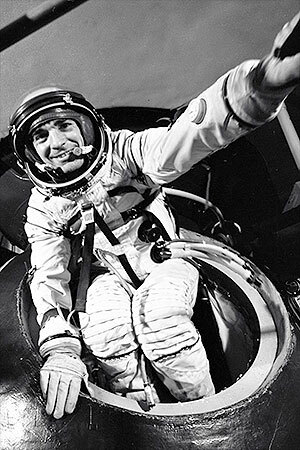15.06.2024

Soviet-era cosmonaut Vyacheslav Zudov, whose failed docking with a Russian space station ended with the first and only emergency splashdown in a Soyuz spacecraft, has died at the age of 82.
Zudov's death on Wednesday (June 12) was reported by Roscosmos, Russia's federal space corporation.
"[His] two-day spaceflight became, without exaggeration, dramatic," read a statement from the space agency. "The landing of 'Radon' (the call sign that the cosmonaut chose for himself) turned out to be no less dangerous."
Selected for the cosmonaut corps with the third group of Soviet Air Force recruits in October 1965, Zudov was chosen to command his first and, what would turn out to be, his only spaceflight. On Oct. 14, 1976, he and pilot Valery Rozhdestvensky launched on board Soyuz 23 on what was planned to be at least a two week, if not two to three month stay on the Salyut 5 space station.
The Soyuz 23 flight was intended as a return to operations for the orbiting outpost after a previous Soyuz crew was forced to terminate their mission earlier that year. Instead, Zudov and Rozhdestvensky faced a similar outcome.
During their approach to Salyut 5, the autonomous docking system failed, leaving no way for Zudov and Rozhdestvensky to reach the space station. They had been trained on how to manually dock, but could not fly a rendezvous. Abandoning their mission and limited by the Soyuz's battery reserves, the two cosmonauts spent a day in orbit and then began their descent back to Earth.
As a landlocked nation, the Soviet Union developed the Soyuz to touch down on land, using a main parachute and braking thrusters to provide a "soft" landing. Cosmonauts did train for contingency water landings, but such a splashdown had yet to occur.
Soyuz 23 targeted a landing near its launch site at the Baikonur Cosmodrome (today in Kazakhstan), but the weather did not cooperate and the spacecraft came down 1.2 miles (2 kilometers) off the shore of Lake Tengiz, which, in mid-October, had already partially frozen over. Complicating matters, the Soyuz's main parachute did not separate and its reserve canopy inadvertently deployed. Once saturated, both chutes acted like an anchor, pulling the capsule below the water.
Although rescue teams were able to reach the site, the local conditions delayed their ability to access the capsule. Zudov and Rozhdestvensky had to power down and remain inside the spacecraft for several hours until their descent module could be hauled out of the water and onto solid land.
Zudov and Rozhdestvensky were cold but healthy. They logged a total of 2 days and 6 minutes in space.
Vyacheslav Dmitriyevich Zudov was born on Jan. 8, 1942 in Bor, a town on the left bank of the Volga River across from Nizhny Novgorod in Russia. He graduated from the Higher Military Pilot School in Balashov in 1963 and became a military transport pilot in the Soviet Air Force.
In addition to his own Soyuz 23 mission, Zudov served as backup commander for the Soyuz 15, Soyuz 21, Soyuz 35 and Soyuz T-4 missions before he retired from the cosmonaut corps on May 14, 1987.
For his service to the space program, Zudov was named Hero of the Soviet Union and awarded the Order of Lenin, among other honors.
Zudov was married to Nina Nikitina and together they had two daughters, Natalya and Yelena. He is preceded in death by his Soyuz 23 crewmate, Rozhdestvensky, who died in 2011.
A memorial service for Zudov will be held Friday (June 14) at the Federal Military Memorial Cemetery, a national cemetery of Russia, located on the northeastern outskirts of Moscow.
Quelle: CS
